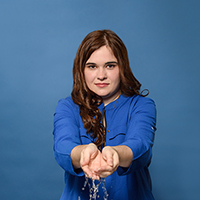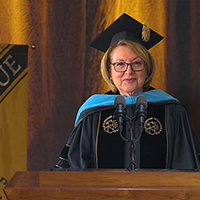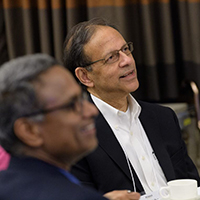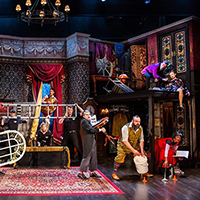One Path Among Many
Retired prof Bob Plante recounts his journey to Krannert
Over time, it is the people you meet because of the choices you make that determine who you are. For me, choices, upon choices, upon choices, created a path to Purdue University, albeit not near a mountain range desired by this longtime downhill skier. Five years at Purdue and I planned to be off to Colorado or Utah. Yet today, 40 years later, it still seems no more than five.
The Setting – Fall 1962
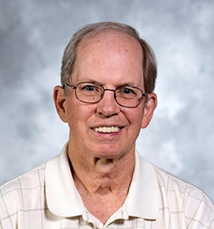
Following a pick-up football game traditionally held during the first week of classes, a small group of freshman athletes is randomly gathered about a table, relaxing as high school students do. High-fiving and congratulating each other on their play, interlaced with “What was your summer like?” and so on. Soon, a discussion began that drew the attention of each. In the previous year, they had a rare-to-the-school winning season in junior high football. However, due to family moves, not making the grade, and a slew of other unexpected events, there was a substantial shortfall of qualified athletes signing up for freshman football. This was especially an issue for the right/left guard position.
Having spent the previous eight years in parochial schools taught by French Canadian Nuns, I was a new student. I had played well enough in the pick-up games to attract the attention of these athletes. At their behest and encouragement, I chose to try out for a sport that I did not know. I saw this as a way to make friends, so I joined the team as a first team left guard. That is, a 5’8” 160lb guard playing opposite 6’+ 250lb+ defensive linemen. Through leverage and taking advantage of the initial, size-induced-overconfidence of my opponent, I more than held my own. The next year, I made varsity, playing left guard and left linebacker.
Upon graduation in spring 1966, I had been a member of a team that, over my junior and senior year, won two championships (league and state) at a school that had never won consecutive football championships, and I was a two-time all-league selection. During that time, I was introduced to and learned the meaning of teamwork from my varsity coach over the last three years of high school. He, along with an every-so-often, attention-getting bang of his clipboard on my helmet, taught me that real coordinated teamwork along with purposeful hard work and training paved the path to success. I carry those lessons with me today.
College Years – 1966 to 1970
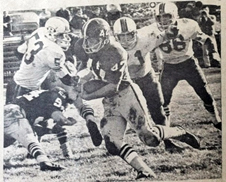 I chose, in my freshman year, to be a walk-on player trying out for running back. I was offered a football scholarship at the beginning of the next year and was the starting left-linebacker as a sophomore. In my junior year, I was the starting right halfback (in the picture I scored on a reverse), and in my senior year, I was a team-voted co-captain. At the end of the football season, the New England Football Writers Association selected me as an Honorable Mention All-New England Halfback. I was not fast, but I was quick at the start and shifty on the run, avoiding tackles and always advancing the ball. I was also the member-voted vice president of my fraternity (Phi Kappa Theta). I graduated in spring, 1970 with a B.S. in Physics, not a degree typically associated with a football player yet popular among the physics faculty.
I chose, in my freshman year, to be a walk-on player trying out for running back. I was offered a football scholarship at the beginning of the next year and was the starting left-linebacker as a sophomore. In my junior year, I was the starting right halfback (in the picture I scored on a reverse), and in my senior year, I was a team-voted co-captain. At the end of the football season, the New England Football Writers Association selected me as an Honorable Mention All-New England Halfback. I was not fast, but I was quick at the start and shifty on the run, avoiding tackles and always advancing the ball. I was also the member-voted vice president of my fraternity (Phi Kappa Theta). I graduated in spring, 1970 with a B.S. in Physics, not a degree typically associated with a football player yet popular among the physics faculty.
As an aside: During the summer of 1969, I received a note from a friend that advertised three days of Peace, Love and Music. It was an event that would eventually be recognized as the iconic event signaling the close of an incredible decade, the 60’s. Of course, that event was Woodstock. We actually bought tickets for all three days and drove, without so much as an extra shirt to change into, to Bethel, New York for three fun filled (read rain-soaked, hungry and tired) days. My most reliable memories are the haunting sound under a dark Friday night sky of the unmistakable crystal clear acapella voice of Joan Baez as well as the not-heard-before Saturday afternoon get-up-and-dance rhythms of Santana.
Military – 1970 to 1974
I was in the first Vietnam draft lottery, and I won (Oh, happy days!). In August 1970, I received orders to report for required assessments of my physical and mental abilities. These tests were designed to not only assess basic skills that were minimally expected of all soldiers in the United States Army (USA), but also to identify those who showed promise of a strong aptitude in important higher order skills. These individuals would be offered the option of taking an additional test to further assess their aptitude, which I chose to take. Following the test, I was informed that my score was the highest ever achieved and I was offered the opportunity to learn a language. That is, to become a linguist, to listen to, and to translate communications such as radio traffic. However, that required four years of active duty, double that of the standard draft requirement. I chose four years.
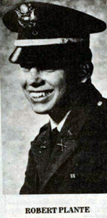 Following Basic training at Fort Dix, New Jersey, I received orders to report to the Defense Language Institute located at the Presidio of Monterey, Monterey Bay, California, for six months of daily training. I had asked to learn Russian but received orders for German. That is, East German (some others who had asked for German received, instead, orders to report to El Paso, Texas, to learn North Vietnamese!). Toward the end of language training, rumor had it that there was an excess of German linguists. I chose to apply for Officer Candidate School (OCS). Upon submitting my application, I was informed by the personnel office that no applicant had ever been accepted before and it was unlikely that l would.
Following Basic training at Fort Dix, New Jersey, I received orders to report to the Defense Language Institute located at the Presidio of Monterey, Monterey Bay, California, for six months of daily training. I had asked to learn Russian but received orders for German. That is, East German (some others who had asked for German received, instead, orders to report to El Paso, Texas, to learn North Vietnamese!). Toward the end of language training, rumor had it that there was an excess of German linguists. I chose to apply for Officer Candidate School (OCS). Upon submitting my application, I was informed by the personnel office that no applicant had ever been accepted before and it was unlikely that l would.
I was accepted, and following my completion of language training, I received orders to report to the OCS Battalion at Fort Sill, Oklahoma (often referred to as “the Gentleman’s OCS”), where I would receive six months of training as a field artillery officer. During this time, I was recognized as the candidate of the month. I won further recognition for maximizing the Army’s physical test, which included running a mile within a certain time. There was a former NFL running back in our class and I stuck to him on that mile run. At the end of six months, I received a plaque recognizing the top Forward Observer for having the best average accuracy to target for calling in artillery rounds. I also graduated in the top 5% of my class, which allowed me to choose the branch of service, provided there was an open slot.

